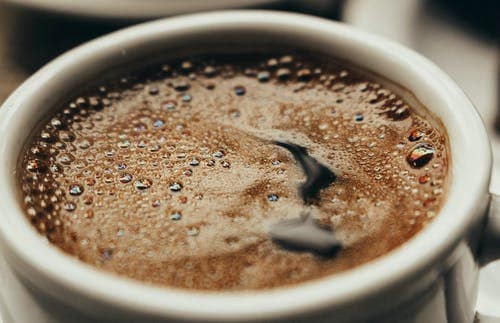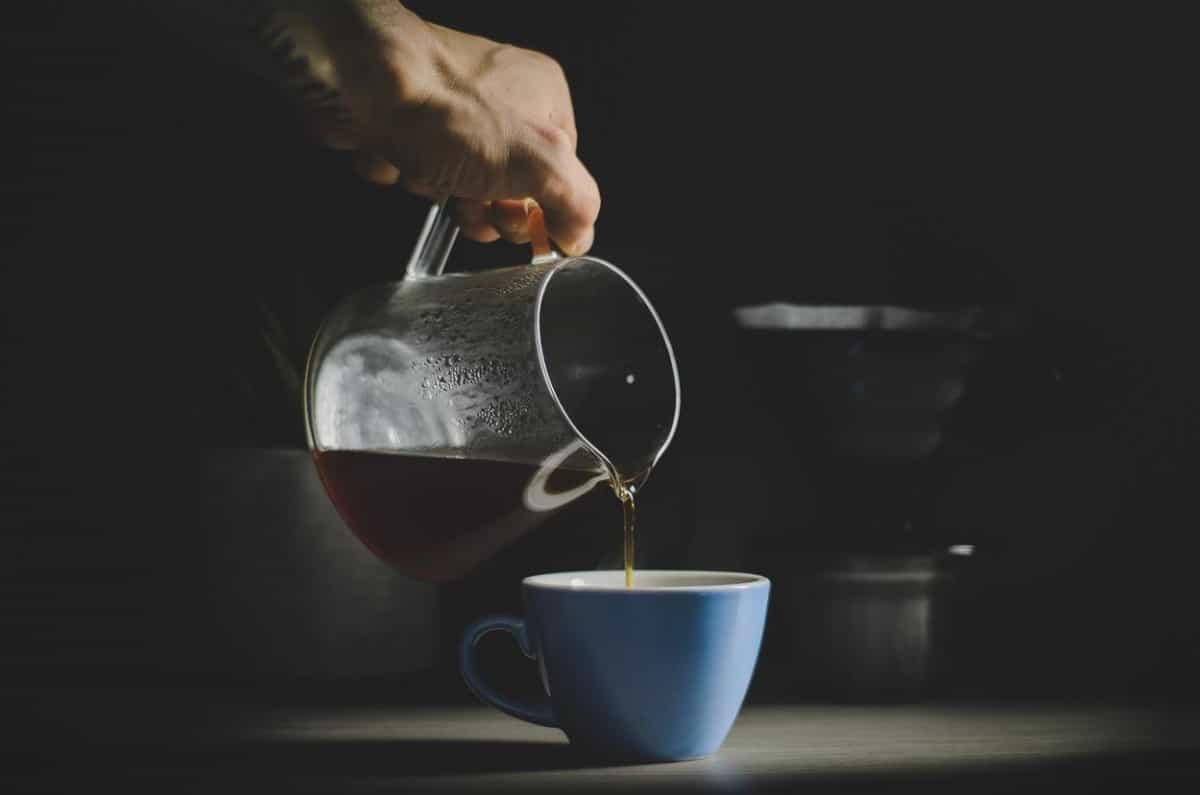Digestive issues are common and can vary greatly. Aside from the usual suspects like Irritable Bowel Syndrom and diarrhea, there are also other digestive issues that can stem from irritants like certain food.
In particular, several ingredients belong to FODMAP, which stands for fermentable oligosaccharides, disaccharides, monosaccharides and polyols. These are sugars that can trigger a terrible reaction in the small intestine, causing digestive distress for people.
People who experience digestive stress can switch to a low-FODMAP diet to mitigate this issue. This means that they avoid food or drinks that are high in FODMAP.
But what about daily habits? It may be hard to give up things you’ve been regularly eating or drinking. But it’s still best to prioritize your health in this instance.
What about coffee? Is it low-FODMAP?
Coffee is a low-FODMAP beverage, especially if you prefer instant coffee or ground coffee. The rule of thumb is that if you take your coffee black or with soy milk and zero to low sugar, then that’s still within the low-FODMAP diet.
However, people with digestive complications would often find coffee to adversely affect their system since it can exacerbate digestive issues. Simultaneously, some would observe caffeine leading to positive results, such as for their entire metabolism.
Since different people and their system reacts to caffeine in different ways, the debate over whether or not one can fit coffee in a FODMAP diet is genuinely legitimate.
What Is FODMAP?
FODMAPs are specific kinds of carbohydrates that are found in various foodstuffs, including beans and wheat.
FODMAP is a separate lining of diet because of its relation to different health complications such as bloating, gas, diarrhea, stomach pain, and constipation.
Moreover, a low FODMAP diet presents the right sources that would significantly boost positive results easing the health conditions mentioned.
Can You Drink Coffee on a Low-FODMAP Diet?
Definitely! Drinking coffee on a low FODMAP diet is as common as you think!
The only concern for coffee being on the low FODMAP diet is that caffeine is widely referred to as a gut irritant.

Research shows that people who have complications relating to IBS (irritable bowel syndrome) may find it challenging to consume coffee regularly.
Drinking coffee is associated with gastric motility and indigestion. It can cause stomach acid, turning into indigestion and cramps in the digestive tract.
How Can I Make My Coffee Low-FODMAP?
There are different yet common procedures to make your coffee perfectly low FODMAP.
Choosing the right coffee can allow you to not cut this beverage entirely from your diet plan.
Here are two best examples of low-FODMAP coffee:
- Instant Coffee: Instant coffee made from 100% coffee beans is a flexible option for a low-FODMAP diet. When instant coffee is substituted with FODMAP milk and sweeteners, you’re all well settled for your daily coffee routine!
- Ground Coffee: Espresso and brewed coffee are considered great low-FODMAP options. Since these are made from ground beans, it definitely is very friendly for a low FODMAP diet.
You can also choose to ground your coffee, roast them, and brew it to make a hot black coffee that is a super convenient option.
What Milk Can You Drink on FODMAP Diet?
To make sure your coffee is well put together to be absolutely safe for a low-FODMAP diet, you can choose to use lactose-free cow milk.
Milk or cream makes a huge difference for making coffee FODMAP or non-FODMAP.
There are also fantastic dairy options that can make your coffee not just delicious but can help maintain the low-FODMAP diet in the long run.
These are milk options for low-FODMAP coffee:
- almond milk
- oat milk
- coconut milk
- hemp milk
- macadamia milk
- rice milk
The amount and type of milk make a massive difference for any kind of diet.
Although it is very high in FODMAP, regular milk is instilled with all-natural benefits that contain vitamin B12, calcium, and phosphorus, which low FODMAP milk options don’t have.
In this case, my personal preference is calcium-fortified milk because of the minerals and nutrients.
Why is Coffee Bad For IBS?
It can be seen that coffee triggers potential IBS symptoms to worsen.
Coffee speeds up the bowel movement faster than any food or beverage which makes it troublesome for individuals with diarrhea-predominant IBS.
However, caffeine is rather helpful for people with IBS-C as it stimulates the muscles in the gut for smooth movement throughout the digestive tract.
Moreover, the chemical compound in coffee, namely salicylates, can cause similar problems related to the high FODMAP effect on IBS patients, although they are not salicylates themselves.
One of the most notable irritants in coffee for people suffering from IBS is salicylates.
But salicylates and their function are subjective to a very small proportion of people who are sensitive to this chemical compound.
For individuals with IBS symptoms, the compounds of coffee contain can stimulate acid secretion, which can be complicated for the gut.
Furthermore, these compounds can also cause indigestion as they can increase the secretion from stomach acid and heartburn.
In such cases, where hot brewed coffee may cause heartburn and belching, it is best to switch to cold brew options.
Can You Have Caffeine on FODMAP Diet?

Caffeine and FODMAP go fine together.
Removing caffeine for a few days when starting the low-FODMAP diet and then slowly reintroducing caffeine in small portions can be much more effective.
If it seems that consuming coffee isn’t triggering your symptoms of IBS, you should be able to sit back and enjoy your cup each day!
However, there should be a specific limit to your caffeine intake on the given re-integration of coffee. The maximum amount that one can go for is 400 mg per day, and less is much more recommended.
The table below breaks down the concept:
| Coffee Type | Amount of Caffeine |
| Regular Coffee | 100 to 150 mg |
| Decaf | 2 to 5 mg |
| Cold-brew coffee | 100-150 |
| Dark Chocolate | 20 mg |
| Black Coffee | 25 to 20 mg |
I would say, decaf coffee, overall, feels firmly fit as a great start for a low-FODMAP diet.
Check out this comparison between coffee and decaf.
Can I Add Sugar to My Coffee When on a Low FODMAP diet?
Sugar in coffee is just fine; however, it’s best to use low FODMAP sugar options and sweeteners for healthier results.
Sugar-free syrups are also great low FODMAP options. Sugar, in general, isn’t associated with triggering symptoms of IBS.
Sugar options you can add to your coffee include:
- Stevia
- Granulated sugar
- Brown sugar
- Raw sugar
So, what sugar option should you avoid?
Sweeteners high in fructose, such as honey and agave, are just as high in FODMAP. Alternatives of these options are regular, and hence, you wouldn’t really have to worry about replacing basic white sugar with honey.
Should You Try a Low FODMAP Diet With Coffee?
The FODMAP diet is a very healthy option and can even have your physical metabolism increased to a certain level.
Coffee has a low impact on breaking your FODMAP diet or causing any blunder at all.
Besides, coffee can be an excellent option for everyday energy boosters.
The only way coffee could affect your diet is when you decide to include anything dairy-based; other than that, it really does not make much of a difference.
So if you do want your gut clean and have your digestion game level up, you could try switching to a FODMAP diet.
Can You Get a Low FODMAP Drink in Starbucks?
Starbucks does have a line of drinks that are considered low in FODMAP!
However, you can customize your Starbucks drink to make it low FODMAP.
Some of the drinks that you can safely order in Starbucks if you’re on a FODMAP diet are:
- Americano
- Hot chocolate/ mocha made with almond milk
- Latte made with almond milk
- Flat white with almond milk
- Lactose-free vanilla latte
Can You Have Decaf Coffee on FODMAP?
It depends on the percentage of caffeine in the coffee.
Decaf has almost 97% caffeine removed from it. So, it sure is suitable to consume decaffeinated coffee on a low FODMAP diet.
Low-FODMAP milk is alternative to regular milk that goes much well with decaf coffee and can be consumed on a daily basis.
It is also a great way to reduce your caffeine consumption from the very first go if you’re considering a low FODMAP diet.
Is Chicory Coffee low-FODMAP?
People who have symptoms of IBS may want to avoid chicory root.
Since chicory has pectin and gums, they are generally not considered as FODMAPs.
Chicory Root (Inulin) is actually high FODMAP and has the ability to increase fiber contents or can also be used as a sugar substitute.
Also, the long-chain carbohydrates in pectin and gums are much extended compared to the carb chains in FODMAPS.
Thus, chicory coffee can lead to bloating and gas complications.
How to Make Low-FODMAP Coffee at Home?
Taking the ingredients, you can make low-FODMAP coffee staying in the comfort of your home.
Ingredients:
- Brewed espresso- 2 cups
- Coconut cream or coconut milk- ½ cup
- Almond milk- 1 cup
- Vanilla extract- 2 tablespoon
Steps:
- Pour the brewed coffee on an ice cube tray and refrigerate.
- Put all the ingredients in the blender and blend for 1 minute.
- Serve the blended coffee with extra ice if needed. You can add coconut whipped cream if you like!
To make the hot brewed version, use hot low-FODMAP milk and coffee and blend them for a minute. Serve and enjoy every sip you take!
Final Thoughts:
Coffee is an excellent source for mind boosters and an intense form of energy provider.
For a FODMAP diet, it definitely can come off as a concern of putting your caffeine into the routine; however, following the low-FODMAP coffee can work great for both your mind and overall health.
But do remember that if you’re someone with IBS, you can try and limit your intake once or twice per day for efficient results.
Moreover, it’s always an excellent way to modify our favorite beverages by putting in little effort rather than sacrificing them altogether.
The best thing about low FODMAP coffee is minimizing your caffeine addiction while still keeping a cup of coffee in your diet!
Now, go explore! Transform your same old regular coffee into the effective low FODMAP one!
Other Articles:
- Is Coffee Bad For Dogs?
- Is Coffee Yin or Yang?
- Is Coffee Soluble in Water?
Contents
- 1 What Is FODMAP?
- 2 Can You Drink Coffee on a Low-FODMAP Diet?
- 3 How Can I Make My Coffee Low-FODMAP?
- 4 What Milk Can You Drink on FODMAP Diet?
- 5 Why is Coffee Bad For IBS?
- 6 Can You Have Caffeine on FODMAP Diet?
- 7 Can I Add Sugar to My Coffee When on a Low FODMAP diet?
- 8 Should You Try a Low FODMAP Diet With Coffee?
- 9 Can You Get a Low FODMAP Drink in Starbucks?
- 10 Can You Have Decaf Coffee on FODMAP?
- 11 Is Chicory Coffee low-FODMAP?
- 12 How to Make Low-FODMAP Coffee at Home?
- 13 Final Thoughts:
- 14 Other Articles:

